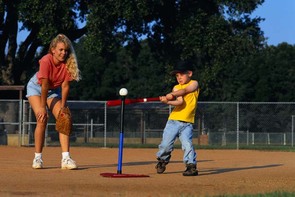 Even the best of children have their moments. Younger ones will cut their eyes at you while testing your limit. “Will she catch me?” “Does she really mean that ‘no’?” Even the worst of children have their moments when they want to do and be good. What’s your best course of action? Always choose first to catch ‘em being good. When called to the table, 13 year old Alec groused that he didn’t feel like coming to eat dinner with the family. He shuffled out of his room, earbuds in place, wanting to be anywhere else but eating supper with his family. As he sat down, dad gave him “that look.” Alec huffed and whispered, “This is such B.S.” At that point, Alec’s folks had a choice to make. They could focus on their son’ attitude. “Enough, young man. Lose the attitude. Eat your dinner.” Such a parental response is very common. Parental authority and family values are being challenged. They would have every right to chastise their son for his disrespect, behavior, and language. If they chose this option, however, they would be trading relationship for power. Do you want your family interaction to be based on your power, or on quality relationship? Or, Alec’s folks could choose to focus on his compliance, even when everything else screamed rebellion. They would start the meal by holding hands and blessing the food. Alec might offer his pinky finger to another at this point, or nothing at all. Mom and dad would make small talk, engage other children at the table, and draw Alec into the conversation in some small way. Assuming the meal goes well, considering, then at conclusion, mom or dad could catch Alec being good. “You know, Son, you made a good choice coming to the table and eating with the family even though it was the last thing you wanted to do. I know you are trying to find your way, and family doesn’t seem to mean much to you right now. Family means a lot to us, obviously, and I thank you for joining us for dinner.” When given options, choose nurturing the relationship over exercising your power. Your child will remember that lots longer. Pay attention to what you want to grow in your child. Catch ‘em being good.
0 Comments
 Did you know? Parents come in all shapes and sizes. There are dictators, push-overs, just friends, overbearing, whatever, and absent parents. Most parents try to do the best they can do. Some are overwhelmed and just trying to keep their heads above water. What kind of parent are you? Maggie and I had Rachel after 7 years of marriage. We planned our family and were ready, or so we thought. Rachel ended up having the colic, probably for 4-6 weeks, but she played it for 4 months. At our wit’s end, we sought help from specialists at the Philadelphia Children’s Hospital. Only the best for our little girl. The doctor took 5 minutes with our daughter and 20 minutes with us. After giving us assurances that our little girl was fine, he noted, “You know, guys, Rachel is now one third of your family. She deserves one third of your time and attention.” Wow! That comment hit me like a ton of bricks. You mean, I can have time for myself and for my wife? Yes, you can. In fact, such time adds to the quality of time you have with your children. In Amy Chua’s book, The Battle Hymn of the Tiger Mom, the author makes a case for being all in with your child. She says, “demanding perfection and mastery, at all costs to you and to a balanced life, is worth it for your child to accomplish great things.” Well, no thanks. The price is too high. Others prefer the role of “the soccer mom.” These parents seem to be at their children’s beckoned call, shuttling them to soccer games and other events in hopes of giving them “a well-rounded childhood.” Also at great cost to you. Neither extreme provides a balance of activity and responsibility among all family members. Other authors, Elizabeth and Charles Schmitz, in their book, Building the Love that Lasts: The Seven Surprizing Secrets of Successful Marriage, advocate for keeping the marriage strong above all else. In Teachable Moments: Building Blocks of Christian Parenting, I describe a Plexiglas pyramid, where above the point is God. As we are in relationship with Him, we have healthy resources for ourselves. As we are in relationship with ourselves, we can be there for our spouse. As the marriage is healthy, we can be there for our children. These pyramid relationships provide the balance of activity and responsibility within which all family members thrive. Where are your priorities, and what kind of parent are you?  It’s true! Parenting is a 24/7/365 job, with no time off, no vacation, no breaks. Remember when that little new born was laying on your chest right after their birth? Despite the pains of childbirth, and don’t let anyone try to convince you that it’s just “pressure,” new parents feel an understandable mix of joy, terror, excitement, pressure, relief, and dread. Jody was sweating, her hair matted, and her heart racing after just having given birth to Hannah. She reached out to the nurse who held tiny Hannah and extended her to place in Jody’s awaiting arms. New daddy, Tommy, leaned in smiling, witnessing the blessing of their new family. Jody looked back and forth from Hannah to Tommy. Terrifying questions flooded her mind. Oh… my… gosh, what have we gotten ourselves into? Can I do this? Am I ready? This little bundle of human being is totally helpless and completely my responsibility. It’s also true that raising children takes a village. We lucky parents have the available resources of our children’s grandparents, extended family, neighbors, co-ops, play groups, day cares, church groups, and many other, personalized resources. Being “alone” with your newborn is avoidable, but you have to reach out. You have to ask. When our children were home, Maggie and I developed the concept of what we called tag team parenting. When one of us was done, exhausted, at our wit’s end, we could reach out and tag the other, “You’re it.” Tag other people in your lives when there’s too much to do. Other things to do when there’s too much to do include delegate, organize, make lists, plan ahead, streamline, and make time to chill out. Many new parents race around doing everything that was on hold while the baby was awake. Do those things with your new baby and she will get used to household routines and not scream for your attention endlessly. Rule of thumb for new moms. When Hannah is sleeping, Jody is sleeping, or at least resting, too. If you don’t give yourself time for your needs and feelings, called self-care, your time for your baby, called other care, will be less meaningful for both of you. When there’s too much to do, go for a balance between self-care and other-care.  Ugh! Sibling rivalry sounds like such a bad term. What good can come from sibling rivalry? Well, actually, lots. While there are some famous accounts of bad sibling rivalry, think Cain and Abel from the Bible, siblings are the second most influential and important people in our lives. At 12 months, Joey was enjoying being breast-fed by mama. While feeding, however, he noticed older brother Andy scampering across the room toward them. Andy came over and tickled his younger brother, who interrupted his lunch to squeal in delight. Later, while scooting on his hands and knees in pursuit of Andy, Joey stopped next to the couch, pulled himself up, and tentatively let go of the couch. With wobbly legs, he fought to balance himself and took several steps toward his brother before lowering himself back to the ground. Both his brother and mother clapped and gave him words of encouragement. Joey beamed after taking his first tentative steps, with much more to come. Every parent revels with delight as their child takes their first steps. Those steps, however, might have been delayed for a while had Joey not felt a certain jealousy and sibling rivalry toward older brother Andy. Andy was his role model and both Andy and mama were his cheerleaders. The combination of role model and encouragement led to Joey’s momentous first steps. Of course, children without older siblings learn to walk as well, but usually a little bit later without the peer role model. Sibling relationships have a “me-you-us” quality to them. As parents, we want to encourage our children’s individuality, parenting them accordingly. Developmental differences come into play as well. Usually, when parents have children who are less than 2 years apart, they are parented jointly and grow up as playmates. When the children are over 3 years apart, they often have different developmental needs. To avoid negative sibling rivalry, it’s important to encourage the older child to be helpful with the younger one. Children born in the no-man’s land of 2-3 years apart can have more contentious sibling rivalry. Because of sibling rivalry, younger children tend to reach milestones sooner than their older sibs did. Active listening, encouragement, and presenting options can promote positive sibling rivalry.  Do you have a favorite childhood memory? I have three. As a small child, I would get up early on Saturday morning. My dad got up with me and made some breakfast. Then, magically, he would ask, “Wanna go for a walk?” That was a special dad time for talking, walking, and exploring. Also, we would usually find some wild flowers to bring back to my mom. I also remember spending two weeks at a summer YMCA camp as I got older. I think I was 7 when it began. Being a “big boy” on my own, meeting new friends, and learning new skills was all great. One time, after camp, my mom helped me unpack my trunk and discovered that none of the clothes I had brought home were mine. “Where are all your clothes, Jonny?” “Well, Mom, I traded them with the guys, you know…” She was put out and fussed at me, but at least my trades all fit me. Finally, summer vacations at the beach were super family fun. We all pitched in, planned stuff, and saved up so we could all have a great time. Usually, good times roll to the extent that you include your children in the planning and preparation for them. Ask your child if she wants to do the activity. If not, have a talk about options. If it is a family activity, include her in the planning and talk up the parts that would be fun for her. Get her input. Active listen her feelings. As your children get older, ages 8 and beyond, think about their inviting a friend to come along on the vacation. Two kids who get along great are usually easier to handle than one, because they tend to occupy each other. Good times roll because of good planning, including and delegating, and having something each family member is looking forward to. It’s summertime somewhere. Let the good times roll.  A newspaper cartoon that I grew up was called “The Family Circle.” Several children and parents, and occasionally a ghostly character named, Not-Me lived in the home. Does Not-Me now live in your home? You come into your family room and see that it is a mess. Susie is on her phone. Joey is locked into a World of Warcraft computer game, and little Emily is talking to her dollies around their tea table. After surveying the mess, you bark, “Okay, you guys. Who made this mess?” In unison, without looking away from their respective activities, your crew responds, “Not me!” That poor fella, Not Me, gets blamed for lots of messes around the home. So, how can you delegate getting the room straight again, while also creating a teachable moment about taking personal responsibility? Several things come to mind. First, you might conclude that assigning individual blame is pointless, and the priority is to get the room straight again, to your standards. If that’s the case, have your children stop all activity and take 15 minutes to collectively straighten the room, with you delegating each responsibility. “Okay. Enough griping. The sooner we get the room straight, the sooner I’m out of your hair and you can get back to your activities.” Second, you might conclude that everybody having fun is more important in the moment than how straight the room is. If the room’s messiness does not directly impact you, then no big deal. However, if you are having friends over in 20 minutes and you want to use the room to entertain them, then the messiness does impact you, and you ride heard to get the room straight in a timely manner. Finally, if you want to use the circumstances as an object lesson for the kids, then the Not Me defense needs to be addressed. After the room is straightened, either sooner or later that same day, have a brief family meeting where you address the subjects of taking personal responsibility and lying. When my son accepted personal responsibility and took the time to make the circumstances right, I heaped praise on him and gushed my pride and his consequence was less. When he tried to dodge the circumstances, I asked him how much trouble he wanted. One trouble is making the mess. Two troubles is making the mess and then lying about it, and his consequences were double. If Not Me lives in your home, use it to create a teachable moment for your children.  All kids get into stuff. Tots and teens? It doesn’t matter. They all mess up. How you handle these mess ups is what really matters. Turn a mess up into a teachable moment by using the Sandwich Effect. Because all kiss mess up, as parents, we can’t catch them being good enough. Every time your child does something right, obeys, shares, listens, organizes, sets up his own accountability system, and makes good lifestyle decisions, praise and reinforce his good choices. Teach them to use the What Would Jesus Do standard. However, stuff happens, and that needs your attention as well. When stuff becomes a learning experience for your daughter, she will become more accountable and grow wiser. So, praise and consequence. Conflicting concepts? Not in the least. Behold the Sandwich Effect. Fourteen year old Paul has a big social studies test tomorrow. It’s quiet upstairs and you anticipate Paul getting into his studies. You go to his bedroom door just to check on him and you see him with Ipod and ear buds, playing his air guitar and dancing around the room. Part of you wants to yell at him to get back to work, as you yank his Ipod from his hand. You take a deep breath and the wiser parent in you prevails. “Aww, man!” you start as you walk into his room. Paul gives you that oh crap, deer-in-the-headlights look. You continue, “Son, you were getting some serious studying in tonight. I just don’t think it’s a good idea to keep the Ipod cranked up and dance around your room if you plan to ace that test tomorrow. Turn off the music for just another twenty minutes, and I will come in to quiz you on what you’ve studied. Gosh, some day you’re gonna make me a rich man with your music, ya know.” Do you see what you just did? You started with a positive, serious studying, and followed with a negative, music distraction. You concluded with another, longer term, hopeful positive, benefits of his music. You sandwiched your negative between two positives. Start with a comment or affirmation, followed by constructive criticism, and conclude with more affirmation and encouragement. This is the formula for using the Sandwich Effect to create a teachable moment.  A favorite book of mine “back in the day” was titled, The Hurried Child. The notion was that our children have so much stress because they are always on the go. And I’m not just talking about hyperactive kids. With internet technology, all kinds of communication tools, plus encouraged activities such as recreational sports, scouting, church, and clubs, when can they take a breath? And, when can we catch up with them? Because of all the options on and pressure for their time and attention, we will want to grab every teachable moment we can with our kids, making the most of opportunities with them. Dad was taking son Joey to his Little League baseball practice one late Spring afternoon. Joey was eating his snack dinner in the car as they traveled there. “So, my man, excited about your game tomorrow night against the Pirates?” Between mouthfuls, Joey shrugged his shoulder and offered, “Whatever, yeah, I guess.” Noticing his son’s mood, Dad joked, “Well, now, don’t be so enthusiastic, big guy.” Again Joey shrugged, “It’s just that, I mean, Robbie’s pitching and I haven’t hit him yet all season.” In his best active listening form, Dad looked for a feeling. “So, you’re afraid he’ll get the best of you again?” “What do you think?” Joey conceded, with dejection in his voice. “I’ll tell you what I think, son, can I tell you?” “Whatever, yeah,” Joey mumbled from a full mouth. “I think that, what you pay attention to grows.” “Huh?” Joey questioned. “You know, focus on the positive and it will grow. Focus on the negative and it will grow.” “Well, I’m positive Robbie’s gonna get the best of me again.” “But you don’t know that, because it hasn’t happened yet, son. You can turn this around. Get your licks in with batting practice tonight and face Robbie in the batter’s box tomorrow night, just daring him to try and throw one by you. Focus on the positive and it will grow.” After taking his dad’s wise counsel in, Joey conceded, “Yeah. I’ll try it. We’ll see what happens.” Your teachable moments with your children do not have to be weekend camping trips, although don’t rule them out. Use a 5-minute car ride to connect. Make the most of all the available opportunities.  In my book, Teachable Moments: Building Blocks of Christian Parenting, chapter 1 is titled “Communication Is Relationship.” A corollary to this statement is my belief that you cannot not communicate. Children, teens, parents, families are always communicating with each other, if not verbally, then nonverbally. Mike’s dad asked him to help him wash the car. He was gaming on his bed in his room early in the afternoon on a beautiful day. Mike looked up from his game toward his father, but with only a blank stare. Was he responding to his dad’s direct request? You betcha. His nonverbal communication either said “I didn’t hear you,” or, “I don’t want to hear you.” His hope, I’m sure, was that dad would just go away. Bethany’s mom was talking on the phone to one of her friends, when she toddled over to the kitchen counter and began tugging on her mama’s pants leg. Mom shook her leg free and turned in her chair as she continued her phone call. Were mom and daughter communicating? Oh, yeah, however unhelpful their nonverbals were to each other. Bethany was saying with her tug, “Mama, I need some attention.” Mom’s response was, “Go away. Leave me alone. Can’t you see that I’m on the phone? My conversation with my friend is more important than you are right now.” When your child’s nonverbal communication is vague, indirect, or confusing, help them with a prompt like, “Sweetheart, I’m confused. Can you use your words?” If the behavior is intense or suggests distress, it will trigger your emotional fever alarm and you want to use your active listening skills. “Wow. You really slammed down that book. Are you frustrated?” Once her feelings are acknowledged, she will be more receptive to your correcting her behavior. We are always communicating, whether it’s verbally, nonverbally, or even both. Teachable moments come from tuning in, decoding, and understanding the underlying feelings.  When my son was a youngster, he wanted to play baseball. Of course, I helped him prepare and he tried out for Little League and made the team. Come game time, he occasionally struck out. At first, he would stomp his feet, throw the bat, and cry. The coach rightfully gave him a talking to, as did I later after the game. It also gave me motivation to join an adult baseball team. If, at times, he saw me handle striking out, then that might help him handle the frustration better as well. How are you as a role model for your children? Some parents fall back on the old saying, “Do as I say, not as I do.” Wow! Not a healthy perspective. Wouldn’t that promote hypocrisy and the notion of getting away with as much as you can? How about this one? “Out of sight, out of mind.” Are you one way with company and another way at home? How are you as a role model for your children? You get no time off as a role model. Your children are aware of who you are, what you do, how you talk 24/7. Certainly when they are toddlers, you are their world. As they get older and wiser, you are still their world. They’re just not going to tell you, and they are looking to find fault and exceptions. Proverbs 22:6 tell us to “raise your children in the ways of the Lord so that, when they grow old, He will not depart from them.” If our role model is the Lord, and we demonstrate His judgment, compassion, and mercy in raising our children, then we give our children every opportunity to succeed in life. We were at a theme park when our kids were 13 and 10. Where got lunch was very busy. The hot dog man gave us our order through the window and turned to get the next order. “Excuse me, but did you want me to pay for this? I said. He sputtered, “Oh yeah,” and told me the amount. I paid him. As we left, my son piped up, “Dude, why did you do that? We could have just walked away and had a free lunch.” He was exactly right. However, seizing the teachable moment, I told him, “but, son, that would have been wrong, cheating, and that’s not who we are.” How are you as a role model for your children? |
Archives
January 2024
Categories
All
|

 RSS Feed
RSS Feed
